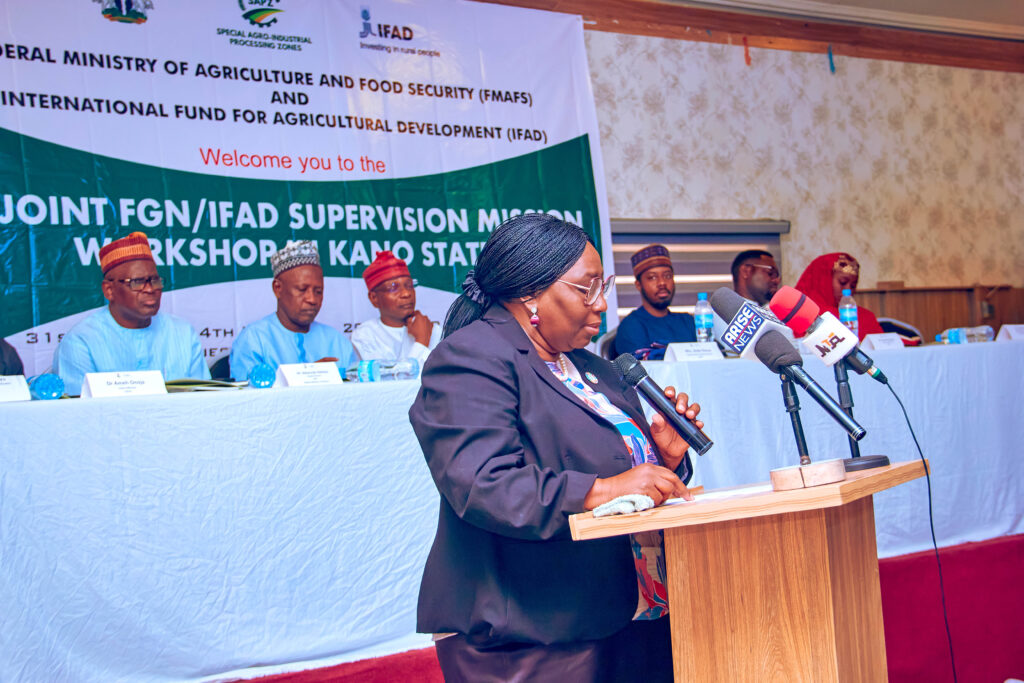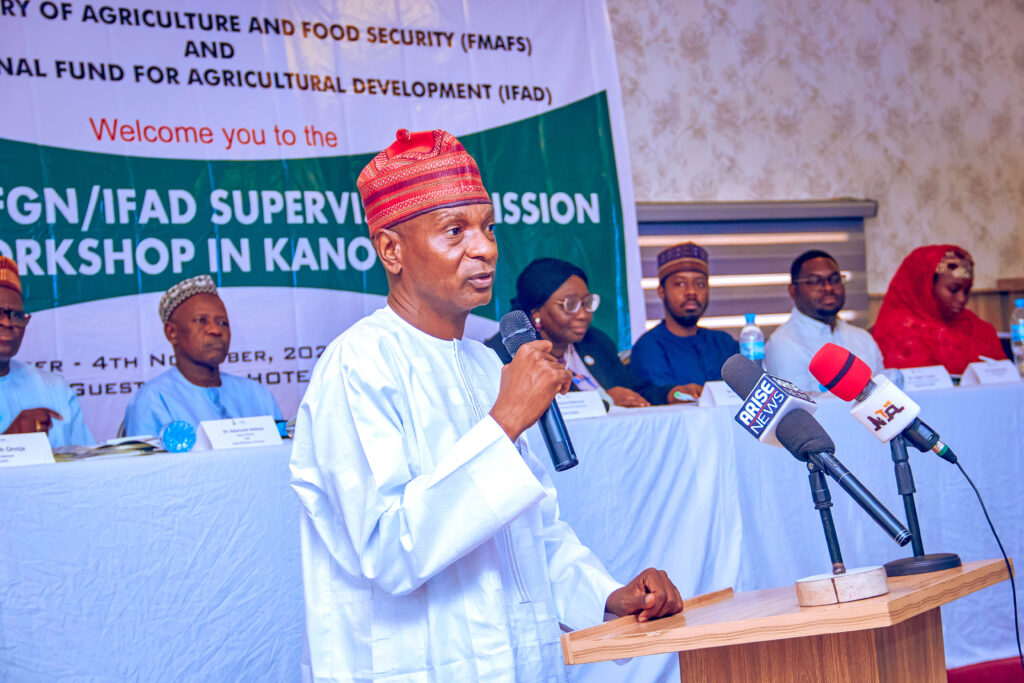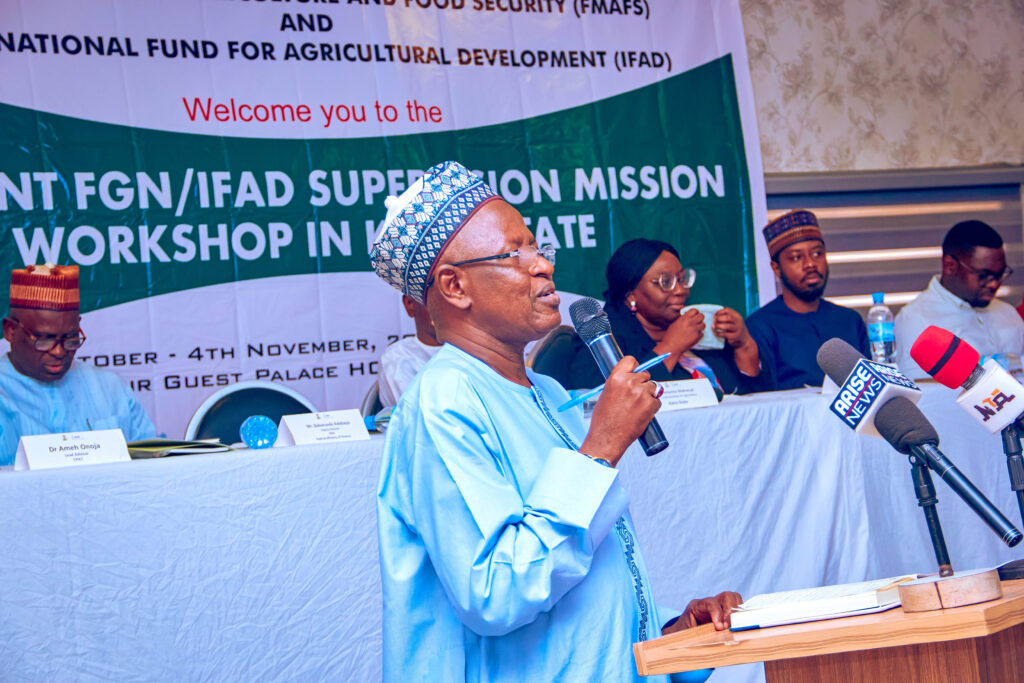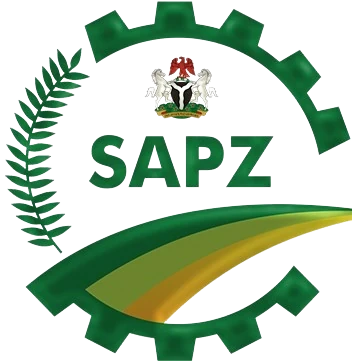The workshop, aimed at launching the 1st FGN/IFAD supervision mission for the Special Agro-Industrial Processing Zones (SAPZ) programme, drew representatives from various government bodies, including the Federal Ministry of Agriculture and Food Security (FMAFS), Federal Ministry of Finance, Kano State Government, International Fund for Agriculture (IFAD), African Development Bank (AfDB), and Islamic Development Bank (IsDB), along with other critical stakeholders.
The 1stJoint FGN/IFAD Supervision Mission workshop was lunched at Federal capital territory, the wells calton, Asokoro, Abuja where the ceremony took place and the mission team moved to Kano State for further engagements and deliberation.
In her welcoming remarks, Mrs. Dede Okoue, IFAD’s Country Director, celebrated the SAPZ team’s remarkable start. “SAPZ has made a commendable beginning,” she stated with enthusiasm. “The commitment and strategic planning shown thus far are promising, and I encourage the team to maintain this momentum to fulfill the shared vision for Nigeria’s agricultural transformation.”
In addition, for the programme would be climate focused, gender mainstreamed, nutrition and youth sensitive, with women accounting for 50% of the direct beneficiaries and youth (aged 18-29) for 40%. The programme will also support persons with disabilities, and internally displaced persons to gainfully engage in commercial agriculture through dedicated support.

She added that, the core objectives of this mission are clear: to assess the progress made in implementing the SAPZ programme and to provide actionable recommendations that will enhance compliance, refine strategies, and ensure SAPZ’s success in achieving its goals. This initiative aligns closely with Nigeria’s dedication to addressing food security and transforming its food systems, goals that also support the country’s Sustainable Development Goals (SDGs).
To ground the attendees in the current state of affairs, the National Programme Coordinator of SAPZ, Dr. Kabir Yusuf delivered an overview of the programme’s accomplishments since its inception. He highlighted several milestones, including IFAD pilot initiative which consist of programme activities in two (2) LGAs of Kano State, with a focus on two priority value chains: rice and tomato. The pilot targeted 500 to 1,000 beneficiaries, in Bagwai and Kura LGAs of Kano State. This include smallholder farmers, farmer organizations, agro-enterprises, value chain service providers, and other value chain actors.

Furthermore, Alhaji Danjuma Mahmood, the Hon. Commissioner for Agriculture and representative of the Kano State Government, reaffirmed the government’s commitment to implementing the Special Agro-Industrial Processing Zones (SAPZ) initiative in Kano, in accordance with the project’s guidelines. He emphasized that the SAPZ program aligns with the governor’s agenda to strengthen the agricultural sector and address food insecurity in the state. He also commended the efforts of the IFAD and SAPZ teams for their support and collaboration in driving the initiative forward.

The representatives from both the Federal Ministry of Finance and Federal Ministry of Agriculture (Director Projects Coordinating Unit, Bukar Musa and Deputy Director IERD, Babatude) followed with remarks that underscored the government’s dedication to supporting SAPZ. They commended the funders, particularly IFAD, AfDB and IsDB, for their partnership with Nigeria and their focus on creating sustainable change. “This collaboration targets the heart of Nigeria’s agricultural community—our smallholder farmers—and seeks to address the urgent need for food security and economic stability,” remarked a Ministry of Finance official.

As the workshop came to a close, it was clear that this supervision mission was more than just a routine assessment; it marked a significant step toward Nigeria’s agricultural transformation. The partners and government entities left the event with renewed energy, committed to transforming these aspirations into concrete outcomes that would benefit millions.

